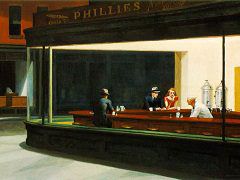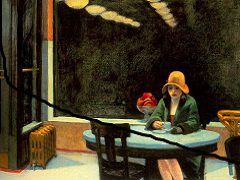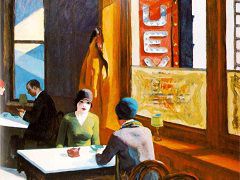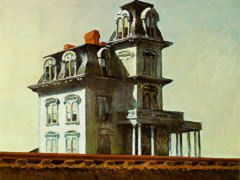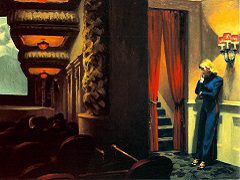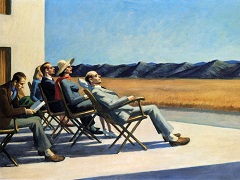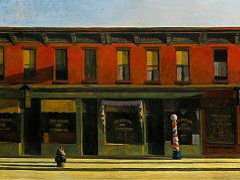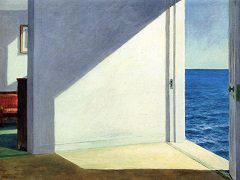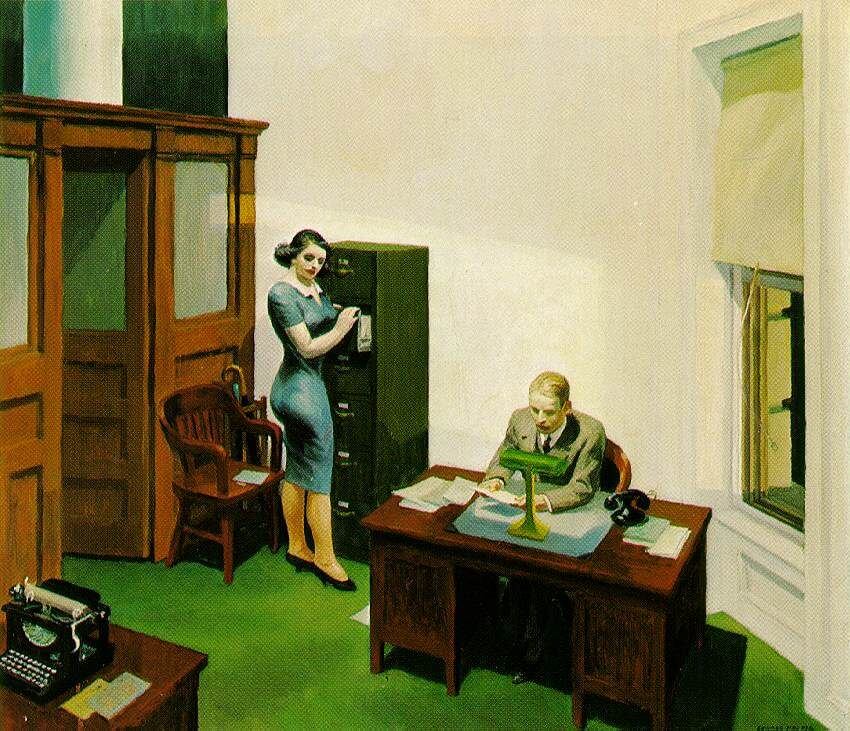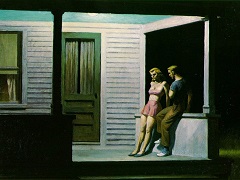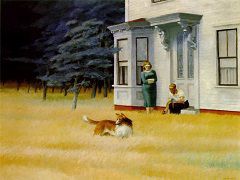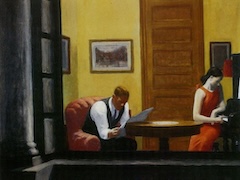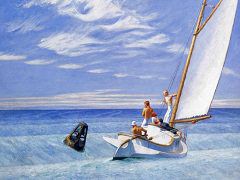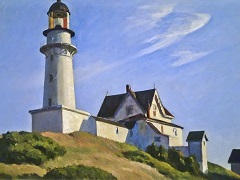Cobb's Barn and Distant Houses, 1931 by Edward Hopper
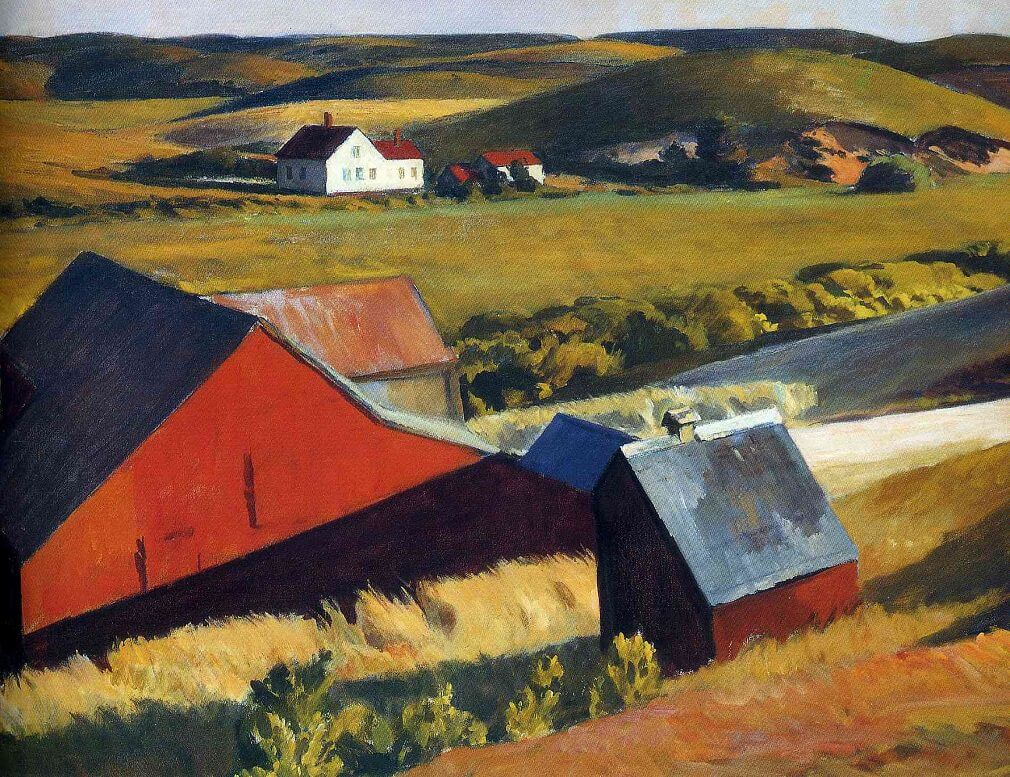
Although paintings of aging or unused barns are now regarded as nostalgic subjects for Sunday painters, Hopper's rendition of Cobb's barn is an original concept that deals with the difficulties of the Depression when farms throughout the country were abandoned. It is worth noting that Hopper was renting Burly Cobb's house at the time this picture was painted.
In the early 1930s, Edward Hopper created a series of works that reflected summers on Cape Cod and that dealt with the realities of the Depression. These works are particularly difficult to appreciate today because they have been copied many times over by artists who have created less trenchant and certainly sentimental versions of them. Hopper's painting present the desolation and abandonment of farming on the Cape, and they make a poignant statement of the difficulties of the Depression. The farm population had declined in the 1920s from thirty-one million to thirty million and thirteen million acres of farmland had been abandoned this same decade. If one can pare away all the cliched images of old, unused barns and look anew at the paintings of Burly Cobb's house and barns in South Truro as well as Ryder's house, one can see that Hopper is memorializing a passing way of life. He presents the scene as viewed by motorist who might be out on the Cape for the weekend. These paintings condemn the viewer who looks at them because they indicate a superficial view of the land: they offer stunning passages of sunlight and shadow and only hint at the personal tragedy that has befallen a farmer whose bar yard is overgrown with weeds and whose outbuildings are closed and deserted.

